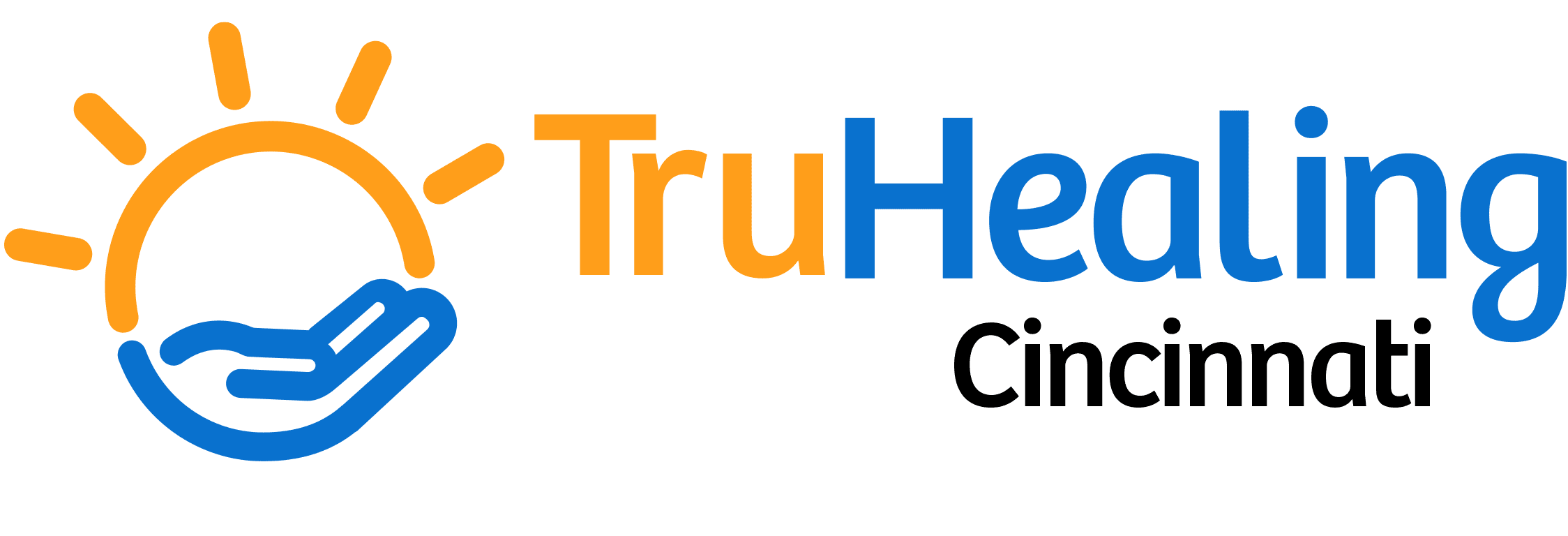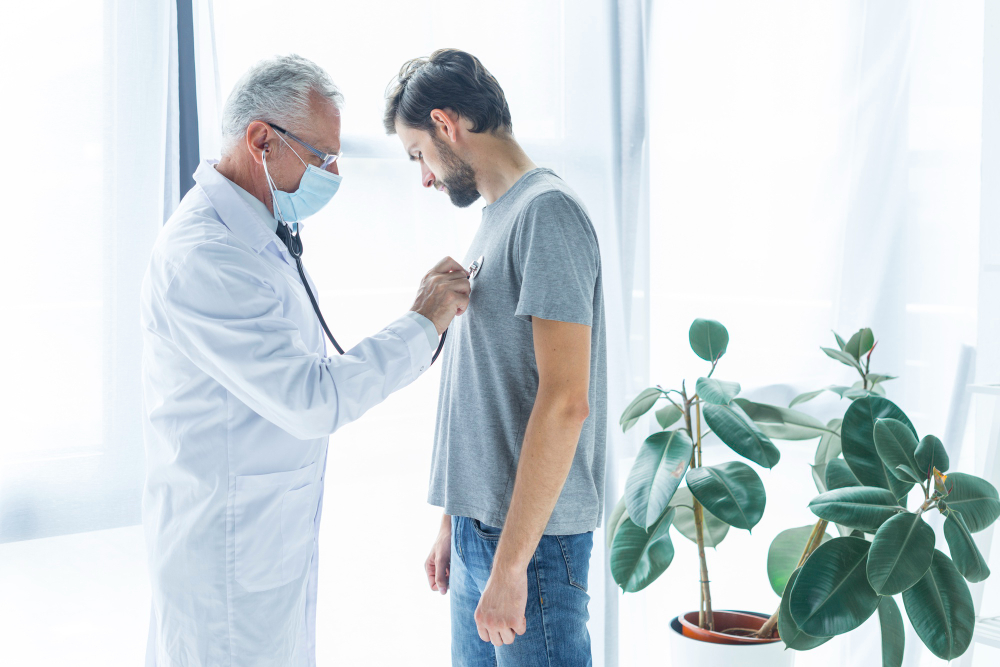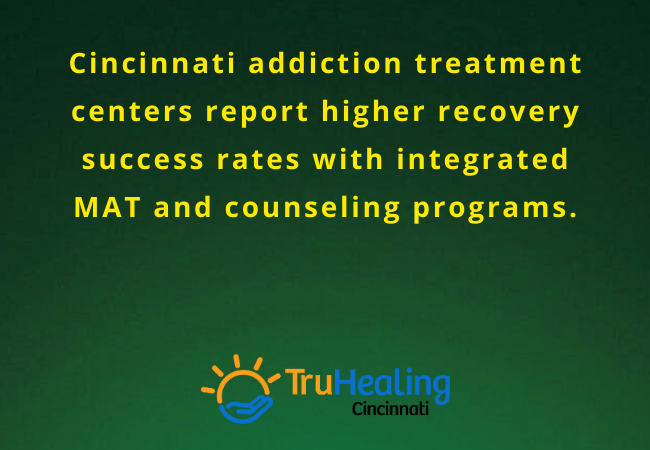For anyone battling addiction, there is a moment of realization: I need to stop. But what will withdrawal feel like?
Maybe you’ve already tried to quit before, only to feel overwhelmed by physical sickness, unbearable cravings, and emotional turmoil. Maybe you’ve heard stories—some exaggerated, some true—about the pain of withdrawal, and it’s kept you from reaching out for help.
You are not alone in feeling this fear. Withdrawal is real, and it’s tough. But here’s the good news: it’s survivable, and it’s bearable — when you have the right help.
At TruHealing Cincinnati, we understand what withdrawal feels like from the inside out. We work with trusted rehab centers in Cincinnati that know how to guide you safely through detox and beyond. In this guide, we’ll give you an honest, compassionate look at what withdrawal really feels like — and how detox in Cincinnati can make all the difference in turning fear into hope.
What Causes Withdrawal? Understanding the Science
Before diving into the symptoms, it helps to understand why withdrawal happens.
When you use substances like opioids, alcohol, or other drugs over time, your brain and body adapt. These substances artificially flood your brain with “feel-good” chemicals like dopamine. Eventually, your brain slows its natural production, relying entirely on the drug to feel normal.
When you suddenly stop using:
- Your body panics, and your brain struggles to regain balance.
- Your nervous system becomes hyperactive, creating many withdrawal symptoms.
- Emotional regulation is disrupted, leading to anxiety, depression, or mood swings.
This is especially true for opioids, which are notorious for causing severe withdrawal symptoms.
Whether you’ve been using prescription opioids, heroin, or fentanyl, the impact is significant.
What Withdrawal Really Feels Like: The Full Breakdown
Withdrawal is not a single moment — it’s a wave that comes in phases. Let’s walk through each stage, so you know what to expect with honesty and clarity.
Phase 1: The Early Onset (First 12–24 Hours)
- Restlessness: You may feel agitated, pacing, unable to sit still.
- Anxiety: Your thoughts race, and panic might set in.
- Muscle aches: General soreness spreads across your body.
- Runny nose, watery eyes, sweating: Early physical signs kick in.
- Cravings: Strong, overwhelming urges to use.
Without professional support at a center like TruHealing Cincinnati, many people relapse at this point to stop the discomfort.
Phase 2: Peak Discomfort (24–72 Hours)
This is often considered the “worst” period — but with medical support, it’s manageable.
- Nausea and vomiting: Digestive distress peaks.
- Diarrhea: Combined with sweating and vomiting, this can lead to dangerous dehydration.
- Severe muscle cramps and body pain.
- Goosebumps and chills: Your body temperature fluctuates.
- Insomnia: Rest becomes elusive.
- Intense cravings and mood swings: Mental distress amplifies.
This is where professional detox in Cincinnati saves lives. Medications and medical monitoring reduce these symptoms dramatically, and staff ensure hydration, nutrition, and emotional support.
Phase 3: Stabilization (4–7 Days)
- Physical symptoms start to fade.
- Cravings persist but lessen in intensity.
- Mood swings and fatigue linger.
- Sleep may start to return, but it’s restless.
At this point, TruHealing Cincinnati’s outpatient treatment in Cincinnati or Partial Hospitalization Treatment in Cincinnati (PHP) steps in to keep you progressing safely.
Phase 4: Post-Acute Withdrawal Syndrome (PAWS) (Weeks to Months)
Some people experience lingering symptoms, such as:
- Mood swings
- Anxiety
- Sleep problems
- Difficulty concentrating
This phase highlights why continuing care is essential. Programs like Intensive Outpatient Treatment In Cincinnati provide tools to manage PAWS and prevent relapse.
| Stage of Withdrawal | What You Feel | How Cincinnati Detox Centers Help |
|---|---|---|
| Early Onset (12–24 hrs) | Anxiety, cravings, muscle aches | Medication to ease symptoms, emotional support |
| Peak Discomfort (24–72 hrs) | Vomiting, chills, insomnia, cravings | 24/7 monitoring, MAT, hydration |
| Stabilization (4–7 days) | Fatigue, mood swings, insomnia | Ongoing care, emotional support, planning next steps |
| Post-Acute (Weeks) | Lingering cravings, mood instability | Outpatient care, counseling, relapse prevention |
Withdrawal From Opioids: Specific Experiences
Opioid withdrawal is particularly intense, which is why opioid addiction treatment in Cincinnati emphasizes medical detox.
Specific symptoms include:
- Bone-deep aches and pains
- Restlessness in the legs (like your skin is crawling)
- Chills and sweating at the same time
- Severe anxiety and dysphoria (feeling of unease or dissatisfaction)
But it’s important to know:
Under medical care, these symptoms become manageable, and you’re never left alone.
The Mental and Emotional Impact of Withdrawal
Withdrawal isn’t just physical. The mental challenges can feel just as overwhelming.
- Intense fear and hopelessness
- Depression and even suicidal thoughts
- Crushing guilt and shame
- Paranoia and irritability
Professional detox centers, like those affiliated with TruHealing Cincinnati, offer immediate emotional support:
- On-site therapists
- Group support
- Medication for anxiety and depression
- Holistic therapies for calming the mind
This holistic approach makes withdrawal survivable — and the path to recovery, achievable.
The Role of Medical Detox in Cincinnati: Making Withdrawal Bearable
Now that you know what withdrawal feels like, let’s talk about how detox in Cincinnati makes it not only bearable, but your bridge to freedom.
1. Medication-Assisted Treatment (MAT)
Medications like:
- Buprenorphine (Suboxone)
- Methadone
- Naltrexone
These medications stabilize brain chemistry, reduce cravings, and significantly lessen withdrawal symptoms.
Studies show MAT can cut opioid-related deaths by over 50% and improve recovery success rates substantially.
2. 24/7 Medical Monitoring
At Cincinnati detox centers, medical teams:
- Track your vitals constantly
- Provide IV fluids and electrolytes to prevent dehydration
- Adjust medications as needed
- Manage unexpected complications
This is critical because withdrawal at home is unpredictable and dangerous.
3. Emotional and Mental Health Support
Professional detox offers:
- Crisis counseling
- Mental health screenings
- Support for co-occurring conditions like anxiety, depression, or PTSD
At TruHealing Cincinnati, dual diagnosis care is part of your recovery journey from day one.
4. Immediate Transition to Ongoing Treatment
Detox is only the beginning. A seamless step into PHP, IOP, or outpatient treatment in Cincinnati ensures you stay on track with:
- Daily therapy
- Skill-building for coping with cravings
- Relapse prevention strategies
- Family support and education
What Happens After Detox: The Real Start of Recovery
Detox clears your body, but recovery heals your life. After safely completing detox, TruHealing Cincinnati provides a full spectrum of care:
Partial Hospitalization Treatment in Cincinnati
- Structured day programs with medical and therapeutic support
- Ideal for clients needing high accountability after detox
Intensive Outpatient Treatment In Cincinnati
- Flexible schedules for balancing recovery and responsibilities
- Group and individual therapy to reinforce sobriety
Outpatient Treatment In Cincinnati
- Step-down level of care for long-term recovery maintenance
- Continued connection to your recovery community
The Emotional Truth: You Are Stronger Than Withdrawal
Withdrawal will test you, but you are stronger than the symptoms.
With professional support at rehab centers in Cincinnati, you won’t have to “tough it out” alone.
What you gain on the other side:
- Clarity: Your mind starts to clear, and decisions feel manageable again.
- Energy: Physical strength returns.
- Hope: Cravings diminish, and the possibility of a sober life feels real.
- Connection: You build supportive relationships with your care team and peers.
Why Choose TruHealing Cincinnati
At TruHealing Cincinnati, we believe recovery is not only possible — it’s your right. We make withdrawal manageable and recovery possible. With medical care, Medication-Assisted Treatment (MAT), and emotional support, you can start your journey with safety and dignity.
When you walk through our doors, you’ll find:
- Compassionate, non-judgmental support
- Professional detox partnerships in Cincinnati
- MAT to ease withdrawal symptoms
- PHP, IOP, and outpatient treatment for every recovery stage
- Dual diagnosis care for mental health and addiction
- Family involvement to heal relationships
- Relapse prevention and long-term aftercare
We are your dedicated partner in this journey — from your first call to long after you complete treatment.
Conclusion
If you’re afraid of what withdrawal will feel like, please know: you’re not alone in that fear. It’s real. It’s heavy. And it’s something thousands of people feel before they begin their recovery.
But here’s what we’ve learned at TruHealing Cincinnati: Fear is a signal, not a stop sign. And with compassionate, expert support, you can face withdrawal and come through stronger than you ever imagined. Our dedicated team is here to ease your symptoms, calm your mind, and stand by your side through every moment of detox and recovery. At our trusted Cincinnati centers, you will never face withdrawal alone. Call TruHealing Cincinnati at 513.643.9118 today. We’ll answer your questions, ease your fears, and guide you to safe, effective detox and recovery care. Your new life is waiting. Take the first step — we’ll walk with you the rest of the way.
FAQ on Withdrawal
What does opioid withdrawal feel like?
Opioid withdrawal feels like intense flu symptoms mixed with severe anxiety and cravings. Symptoms include muscle aches, chills, nausea, vomiting, and emotional distress.
How long does withdrawal last?
Withdrawal typically lasts 5–7 days for opioids, but some symptoms, like mood swings or cravings, can persist for weeks. Professional care helps manage these effectively.
Can detox in Cincinnati really make withdrawal bearable?
Yes. With Medication-Assisted Treatment (MAT) and 24/7 medical monitoring at Cincinnati detox centers, withdrawal symptoms are safely managed and greatly reduced.
Is it dangerous to detox at home?
Absolutely. Home detox increases the risk of severe complications like dehydration, seizures, and relapse. Always seek professional addiction treatment in Cincinnati.
What treatments follow detox at TruHealing Cincinnati?
After detox, we provide Partial Hospitalization Treatment in Cincinnati (PHP), Intensive Outpatient Treatment In Cincinnati (IOP), and outpatient programs for continued support.
Will insurance cover detox and treatment?
Most insurance plans cover detox and addiction treatment. TruHealing Cincinnati offers insurance verification to help you understand your coverage options.


